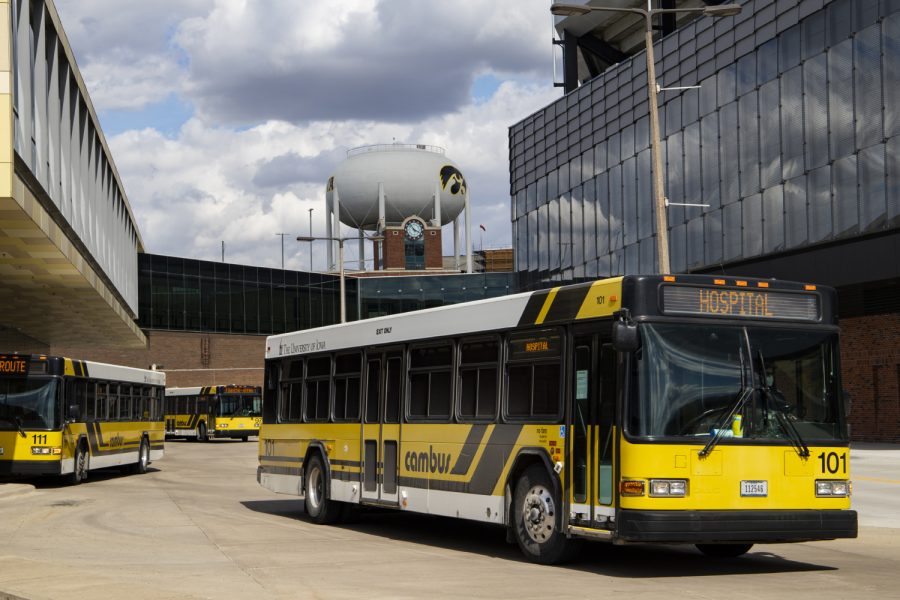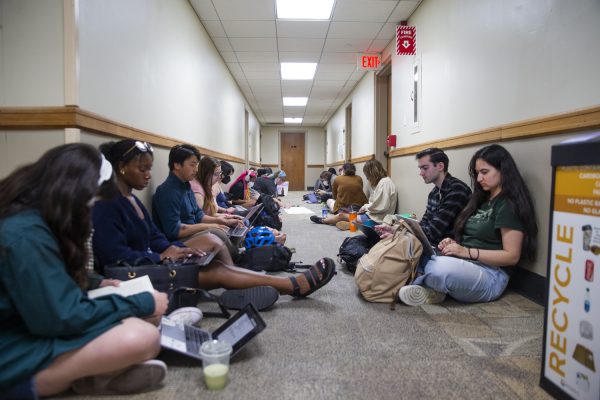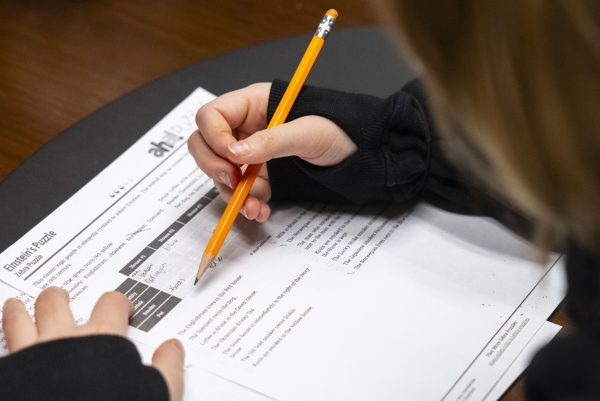Board of Regents find inconsistencies in drug, alcohol testing, insuring vehicles during audit of Cambus
The state Board of Regents’ Interim Chief Audit Executive Debra Johnston reported inconsistencies in the practices of Cambus and Fleet Services.
Cambuses pick up and drop off passengers at the WCTC stop on Monday, April 20, 2020.
April 14, 2021
Several inconsistencies in Cambus operations were reported during the state Board of Regents Audit and Compliance Committee meeting on Wednesday.
Interim Chief Audit Executive Debra Johnston highlighted three of the seven audits that were issued, including the audit of University of Iowa’s Fleet Services and Cambus. She said there were some areas of noncompliance with the Federal Transit Authority Regulations when it came to drug and alcohol testing, among other disparities.
“One of the things we found was that we were unable to verify that all return to duty tests were completed after a driver had tested positive for drugs,” she said. “…If a driver does test positive, they are required to attend counseling with a qualified substance abuse professional and there after the university is supposed to conduct random drug tests six times in the next 12 months. We could not see the documentation that that happened all the time.”
Fifty percent of Cambus employees are drug tested every calendar year in accordance with random drug testing policies, Johnston said. Ten percent of employees are tested for alcohol use as well, she said.
“In 2020, the random alcohol tests were not completed because the facility that they were using for those tests closed due to COVID,” she said. “Going forward, they are going to be using the same facility that the risk management uses to administer their testing protocols.”
The auditors also found that terminated employees had access to certain systems after their work at Cambus ended, Johnston said.
Alongside inconsistencies in Cambus and the Federal Transit Authority regulations, Johnston said the regents could not find documentation regarding the decision to drug test or not to test employees after an accident.
There are valid reasons to not test drivers, she said, but those occasions need to be documented. According to the Federal Transit Authority, drivers are required to be tested after accidents that result in death, bodily injury, or when one of the vehicles requires towing, Johnston said.
More inconsistencies were found in processes of tracking vehicle titles and ensuring the proper number of vehicles.
RELATED: Federal order strengthens Cambus mask mandate
“We noted that there are manual processes still in existence for transferring data between the two systems used, the Fleet Services requisition and the Fleet rental system, ” she said. “…This increases the potential for data errors and reporting errors.”
The audits are still open according to the regents’ documentation, but the Cambus audit was one of two UI audits that received moderate ratings, meaning there are some issues that could affect a department that needs the attention of upper management. A moderate rating can also show an area that involves a need for compliance with federal, state, or other laws that could result in minor consequences if not implemented.
The regents expect to complete the actions needed to improve CAMBUS by January 2022 according to Audit and Compliance Committee documents.
In other audits, the UI’s audits for the College of Pharmacy Building Construction received a moderate rating, while the Housing and Dining Misconduct Protocols and the University of Iowa Pharmaceuticals received Low ratings, meaning there were no reportable observations or corrective action needed.
Editor’s note: This article has been updated with a statement from Debby Zumbach, the UI’s associate vice president and director for parking and transportation/purchasing and business services.















